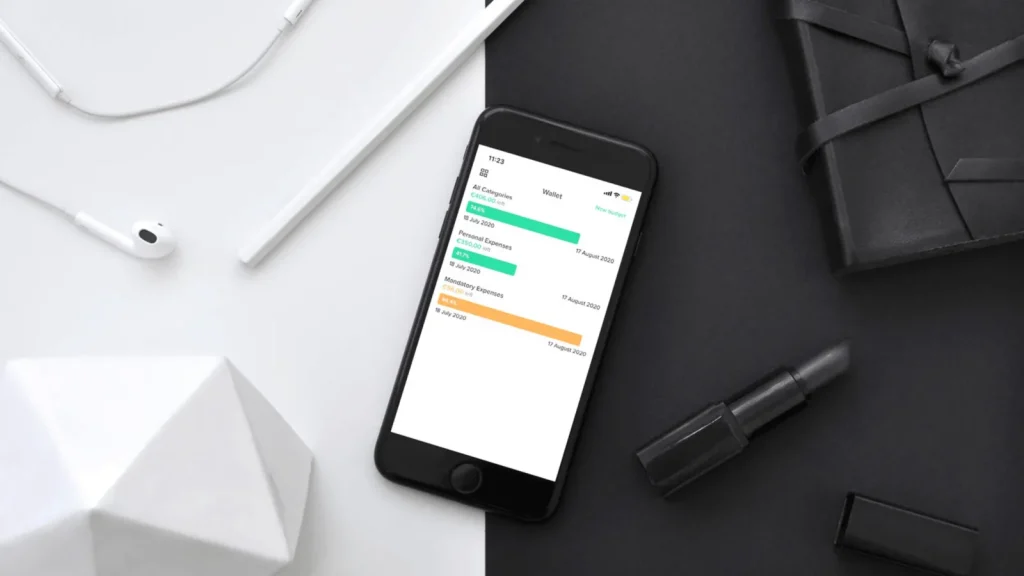Managing personal finances can often feel overwhelming, but with the right tools, it becomes much more manageable. Today, we dive into the best financial management apps that can help you take control of your money. By leveraging cutting-edge technology, these applications offer solutions that streamline budgeting, track expenses, and help you plan for the future.
Whether you’re looking to save more, spend wisely, or simply want to stay organized, there’s an app tailored to your needs. So, let’s explore how these platforms are transforming personal money management and making financial literacy accessible to everyone.
Top financial apps for managing expenses

Budgeting and expense tracking are essential components of personal finance management. With the advancement of technology, numerous apps have been designed to make this process effortless. Among these, Mint stands out as a user favorite. This app provides an overview of your financial health by connecting directly to your bank accounts, credit cards, and more.
Another noteworthy mention is YNAB (You Need a Budget). This app adopts a proactive approach to finance management by encouraging users to allocate every dollar with intention. YNAB helps you stay disciplined through educational tools and real-time sync across devices, proving to be invaluable for those wanting to break the paycheck-to-paycheck cycle.
Importance of choosing the right app
Selecting the right financial app is crucial for achieving your monetary goals. It should align with your lifestyle, financial habits, and preferences. The ideal app provides a blend of user-friendly interface, essential features, and security measures that safeguard your data.
Not every app suits every user, so it’s important to consider your priorities. Are you primarily concerned with budgeting, or do you need an app that also tracks investments and savings? Furthermore, a good financial management app offers integration across platforms, allowing seamless tracking whether you’re on a computer, tablet, or smartphone.
Some users prefer detailed reports on their spending patterns, while others might value comprehensive financial planning tools. Assessing these needs will guide you to the right choice, ensuring the app becomes a valued companion in your financial journey.
Real-life applications of financial management apps
Financial apps are increasingly becoming an integral part of daily life. In real-world scenarios, these apps help individuals stick to budgets, gain insights from spending analytics, and make smarter financial decisions. Consider someone who wants to save for a vacation — using a management app, they can create a savings goal, monitor their progress, and even receive alerts if they’re deviating from the plan.
Moreover, these apps cater to diverse needs. A college student may use a simplified version to track daily expenses, while a professional might seek more robust tools for managing multiple income streams and investment portfolios. The adaptability of these apps is what makes them so valuable; they serve both individuals looking to manage essential expenses and those with more complex financial landscapes.
How financial apps contribute to financial literacy
Financial literacy is a critical skill that many people endeavor to learn. With financial management apps, education becomes more accessible and engaging. These tools provide real-time feedback and insights that help users build a stronger understanding of their finances. By offering features that break down complex financial terms and present them in a digestible manner, these apps foster comprehensive learning environments.
Apps like Personal Capital offer financial planning tools that guide users in understanding their net worth, asset allocation, and retirement readiness. By visualizing data, users can gain a clearer picture of their financial standing.
This educational aspect empowers users to take charge of their economic futures with confidence. Planning features also empower users to set realistic goals and track progress with regular updates, reinforcing positive financial habits.
Security features in financial management apps
Security is paramount when dealing with financial information. Reputable financial management apps go to great lengths to protect user data. They implement robust security protocols, including encryption and multi-factor authentication, to safeguard personal and financial details. These protections help prevent unauthorized access and assure users that their data is handled responsibly.
Additionally, most trusted apps comply with financial regulations and standards, such as PCI DSS (Payment Card Industry Data Security Standard), ensuring that sensitive information is stored and managed securely. Users should always verify that an app has these certifications before entrusting it with their information.
Future trends in financial technology
The future of financial technology promises exciting developments. As AI and machine learning evolve, financial management apps are expected to offer more personalized insights and predictive analysis, helping users anticipate expenses and optimize savings with unparalleled accuracy.
These advancements could revolutionize personal finance, enabling users to make data-driven decisions and maintain financial stability. Cross-platform integration will also become more prevalent, allowing users a seamless experience between wearable devices, apps, and other digital services.
Interoperability is key, providing holistic views of finances that paint a complete financial picture without the need to switch between multiple platforms. Lastly, with the rise of blockchain technology, future apps may also incorporate decentralized finance (DeFi) elements, providing users with innovative avenues for investment and money management.




